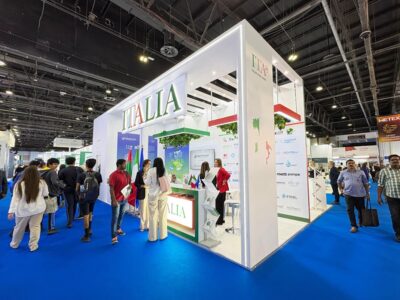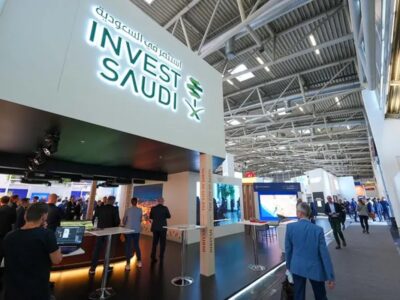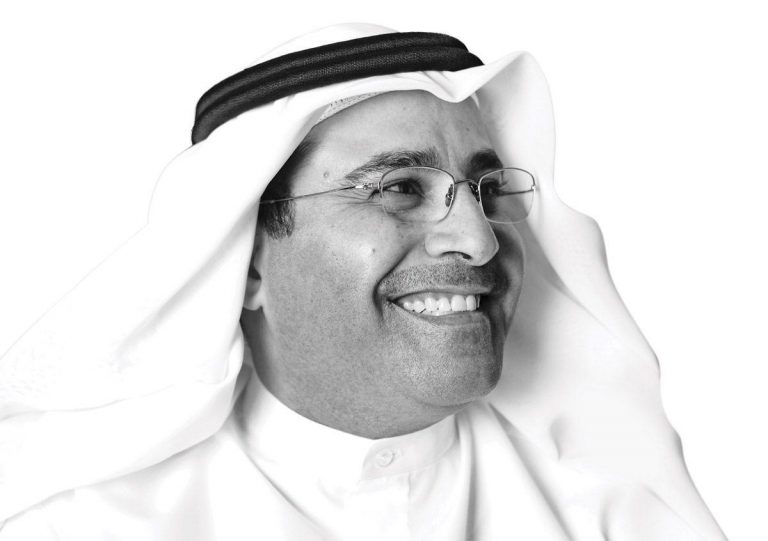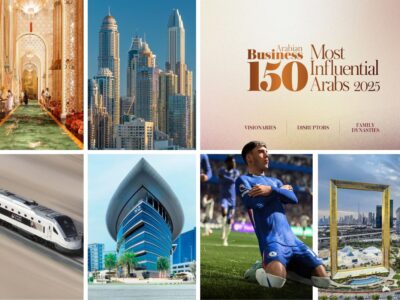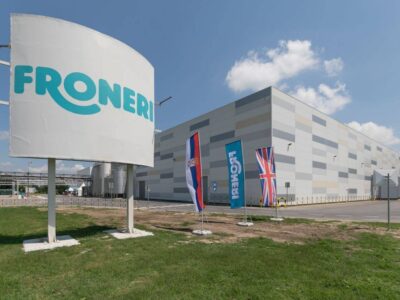He’s on a roll. Sharp talk. Quick wit. Smart deal. “I want to begin the interview by asking you a question for change,” says Mohammed Alshaya. “Does your wife ever get bored of buying lingerie?”
We could end the interview there and then, as the executive chairman of retail giant MH Alshaya explains the reasoning behind a deal to take over the UK business of La Senza, bought out of administration last week. Over 1,100 jobs have been saved across 60 UK stores, and with a total planned investment of $155m, watch out for new designs, new collections and a new shopping experience.
But more than anything else watch out for Mohammed Alshaya. The British High Street maybe in crisis and Europe staring at a double dip recession. However, the self-styled king of retail knows when to buy and what to buy, and he has a history of getting it spectacularly right: today the Alshaya Group operates more than 55 international retail brands in nineteen countries, employing over 22,000 staff in more than 2,000 shops. If the recession separates the swimmers from the sinkers, Alshaya is the retail world’s answer to Michael Phelps.
“We are not a public company, so I don’t have the pressure of Wall Street pushing me to deliver short term gains. We are going — inshalla — to work hard to meet our goals. Those with a vision of how to grow a business have to take some calculated risks, and yes this is a calculated risk,” he says, adding: “But seriously, how many women do you know that don’t like buying lingerie? In a recession they may limit their purchases of other items like skirts, but my opinion is they won’t stop buying lingerie.”
Alshaya already has strong ties with Limited Brands Inc, the US-based owner of the La Senza brand. It owns the Middle East franchise for the Victoria’s Secret and Bath & Body Works brands and already operates La Senza in Russia. The deal will see much of the new investment go into refurbishing the existing stores, giving them a “brand new feel” over the next two years. Alshaya is of course no stranger to UK brands, also owning the overseas franchises for Mothercare, Debenhams, Boots, Next, River Island, Topshop, Miss Selfridge and The Body Shop.
But the deal is a major strategic shift — apart from Pinkberry last year, this is only his second physical presence in the UK High Street, and by far his biggest. The move comes at a time when UK retail insolvencies are forecast to reach the highest level in four years as weak Christmas sales leave chains struggling to meet rent costs. Increasing numbers of shops are expected to collapse into administration or announce store closures as the consumer slowdown takes a stranglehold on the UK High Street.
The Centre for Retail Research said 31 major retail companies fell into receivership last year with 24,025 jobs affected. Last week Tesco saw its shares crash fifteen percent on the back of poor Christmas trading.
However, Alshaya is confident he can make the deal work. “I am mindful of the challenges the UK is facing but personally I think these are medium-term challenges, maybe four years at the maximum. Just because we are not a public company doesn’t mean we are accepting lower returns. The key difference, and it is a very key difference, is that we always have to make the right investments. That means we have to invest for the medium-to-long term, and we have to accept a growth rate that is good for us,” he says.
He adds: “Look at real estate. Some places in the world will give a four percent return on asset value; some place will give you twelve percent — three times more. Now is the four percent model stupid? No. Is the twelve percent model crazy? No. It all depends on the business, the product and the market. We are not doing this to just try and turnaround the company and sell it. We are not a private equity firm that wants to take over a business for four years, create value and sell it. That’s not us, that’s not what we do. We are in this for the long haul.”
Alshaya says he will be busy working closely with La Senza in the coming months, but won’t rule out more UK deals. “We are looking at some ideas for the medium and long term.”
Article continued on next page
His track record suggests he will find some. Throughout the Middle East and North Africa, Russia, Turkey, Central and Eastern Europe, he has grown the world’s leading brands in fashion and footwear, food service, health and beauty, pharmacy, optics, home furnishings and office supplies. This year will also see the company enter the leisure and entertainment sector for the first time with the launch of the Kidzania brand in Kuwait. Two years ago, at what seemed to be the height of the recession in the GCC, he ploughed $40m into the new Mirdif City Centre in Dubai, which features a staggering 29 of his brands. Since then, other retailers have struggled to find growth and the jury is out on whether the worst of the crisis is over. Modest growth rates are forecast across much of the GCC this year, though some countries like Qatar are set (again) for double-digit growth. Alshaya himself — who said two years ago that he believed the worst was over — is sticking by his positive outlook.
“I think with hindsight my statement was right. We have seen some signs of recovery in the GCC though not as good as we wanted. Dubai is recovering, I have no doubt. Saudi Arabia is doing better, so is Qatar. The GCC has the diversity of income streams that makes it a good story for investment,” he says, adding: “If you combine the GCC together you are talking about a $1trillion economy. That puts it in the top ten of the world, and that is delivered with a population ten percent the size of the US. This is based on natural resources, plus now infrastructure and tourism, logistics, even manufacturing and exports.”
Few people are better qualified to call the state of the economy than Alshaya — he has certainly seen and done it all many times over in retailing. His career began 29 years ago when the former Wharton School of Business graduate did a three-month work experience stint at Mothercare, stacking shelves and advising mothers on which prams to buy. He quickly developed a flair for the industry, and by 1999 was CEO of the group, before taking the role of executive chairman in 2007. He is a very much seen today as a global business leader, and is also a board member of the Arab Thought Foundation, and a member of the Wharton Board of Overseers.
In recent years, he has taken a strong stance against what he perceives as a lack of enthusiasm amongst young Arabs to embrace the private sector. Two years ago he told Arabian Business: “The public sector is security for life. That’s a big problem. How can I make someone secure in a job without measuring their productivity, and whether they are doing a good job and not whether they are secure? That is a crime. It’s criminal that this is being allowed to happen with our population in the private sector.”
So two years on, have things changed for the better? He says that things are “generally getting better”, and points to positive initiatives being implemented in Saudi Arabia for the training of young Saudis. But he adds: “There are still places where the government is just handing out more money for its workforce, so that makes it a challenge. We need an open and competitive market, and a level playing field, between the public and private sectors. The fundamental issue we still have is that of educating the young on the importance of work ethics, discipline, and being humble. We have to erase the
mindset of entitlement.”
For Alshaya there has never been any sense of entitlement. In fact, he has never been busier. In December he completed a deal with Saudi developer Dar Al Arkan to bring eighteen of his brands to the Alqasr Mall in Riyadh. Three months earlier he partnered with Texas Roadhouse to launch the US-based steakhouse chain in the Middle East, having also the same year signed franchise deals with the Chicago-based chain Potbelly Sandwich Shop, New-York listed chain The Cheesecake Factory and the Shake Shack burger outlet. The same period also saw Alshaya enter the Moroccan and Iraqi markets.
Any hint of slowing down? Forget it. “Our strategy for the long term is to diversify into new markets, new economies and new products. That’s exactly what we are doing.”
